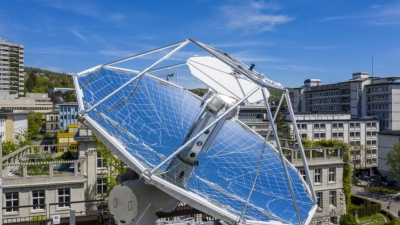
Carbon-neutral fuels are those that result in no net release of carbon dioxide into the atmosphere. This is very important for us and these fuels would be extremely crucial to make aviation and maritime transportation sustainable. It might be early days, but a group of researchers might be moving towards a possible solution.
Scientists at ETH Zurich have been operating a mini solar refinery that can produce carbon-neutral liquid fuels from sunlight and air. Their plant which has been running on the roof of ETH’s Machine Laboratory building in Zurich for the past two years, produces synthetic liquid fuels. These fuels release as much carbon dioxide during their combustion as was extracted from the air for their production, resulting in no net release of carbon dioxide.
Stable operation
Water and carbon dioxide are extracted from ambient air and split using solar energy. A mixture of hydrogen and carbon monoxide, called as syngas, is yielded in this process and this can be processed into kerosene, methanol, and other hydrocarbons. The system has been operating stably under real-world conditions and the technology has been tested enough to now be pushed for industrial applications,
The scientists have not only described how their solar reactor functions in a paper published in the journal Nature, but have also outlined a framework that might provide the impetus for adopting this fuel.
Multiple analysis of the process suggests that industrial scale production of the fuel would cost 1.20 to 2 euros per litre and that desert regions rich in solar resources would be particularly useful as production sites.
Challenges ahead
The researchers are aware that taking the technology to industrial scale would be a huge challenge. Given the prohibitively high initial investment costs, they believe these fuels will require political support to enter the market, before becoming competitive with existing aviation fuel. For only if construction of production facilities like these are backed now can there be learning that will lead to further technological advances and lower prices of solar-based fuels.
Picture Credit : Google




